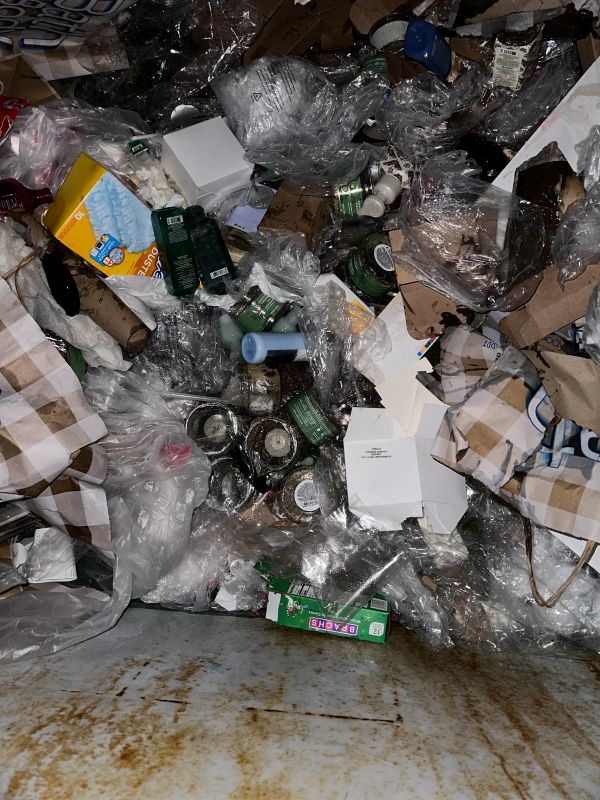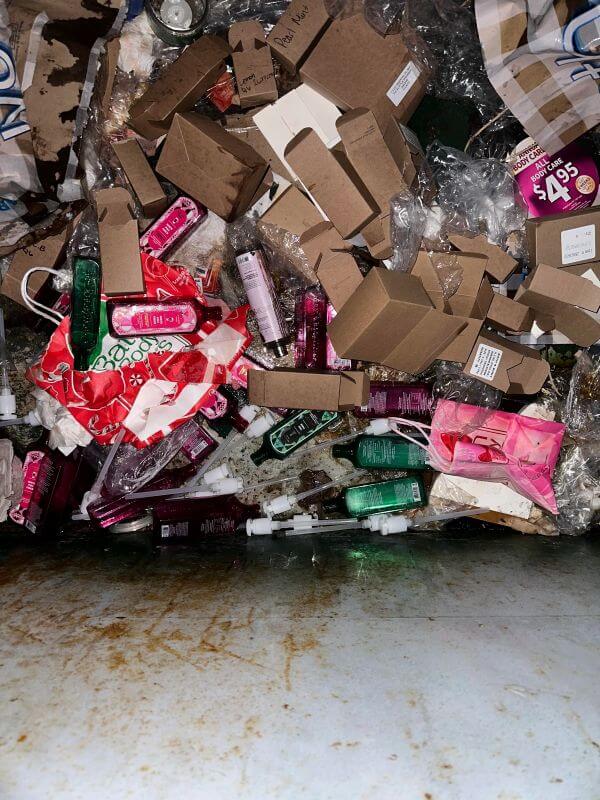For one passerby, a potential holiday haul turned into a disappointment when they peered into a dumpster and discovered a disturbing amount of waste in a Bath & Body Works bin.
What's happening?
In the subreddit r/DumpsterDiving, the poster explained that they were "sick" about the number of seasonal products in the bin. The plastic bottles were sitting on top of even more plastic, in addition to ripped Bath & Body Works shopping bags and cardboard.


Even worse, the Ohio store had seemingly taken action to ensure no one would be able to enjoy the scented soaps for free, as the OP revealed that "it was all emptied."
All this before the holiday season is even over, too, as the post was made Dec. 16 — by an active member of the community who had made another post about an evidently more successful Bath & Body Works diving effort a few days prior. The situation had the dumpster diving community in anything but a happy holiday mood.
"I'm so confused," a Redditor responded. "Why are they throwing out Christmas items when it's not even after Christmas? Seeing as they're always doing sales, why not just put all the Christmas stuff on sale? So much waste."
"I'm never shopping there again," someone else wrote.
"Ugh. Yeah, it's very disheartening to see," another user said.
Why is this important?
It's not uncommon for dumpster divers to find valuable products and even perfectly good food in store bins, spotlighting just how much waste is destined for our already overflowing landfills, which release potent planet-warming gases such as methane as items break down.
Fortunately, dumpster diving can help divert some of that waste — and basically recoup some value from the energy that went into making the products. However, when items are damaged or emptied, recovery isn't generally possible.
Bath & Body Works isn't the only company that has come under scrutiny for such a practice. For example, internet users raged against Ulta when behind-the-scenes videos emerged of employees' destroying shampoo bottles, eyeshadow palettes, and more.
Then, there's also the matter of all that plastic and cardboard waste in the Bath & Body Works dumpster. Earlier this year, the National Renewable Energy Laboratory found that the United States loses a whopping $4 billion in economic value by landfilling rather than recycling.
Is Bath & Body Works doing anything to reduce plastic waste?
In its latest environmental, social, and governance report, the company announced that it had launched hand soap packaging made from at least 50% recycled plastic and begun offering refills in recyclable cartons and reusable glass containers. It has also phased out plastic gift cards with Forest Stewardship Council-certified paper cards that are blue-bin recyclable.
More broadly, it says it has donated more than 575,000 personal care items to underserved communities and as part of disaster relief. Given those efforts, it is unclear why the holiday-themed products were tossed.
"Why don't they donate to shelters that need soap and other items? It's hard to see. I'm actually going to ask BBW in my area next time I'm there if they would let me drive trash items to a shelter," one commenter wondered.
Another Redditor suggested the move may be aesthetic with "corporate marketing resets done all day every day," though a former employee wondered whether the emptied soaps were expired or part of an "unhygienic" return — though that would require quite a high number of returns and the employees' emptying the bottles before throwing them away.
How can I reduce plastic waste more broadly?
Greenpeace has raised the alarm about low recycling rates, calling the process a "dead-end street" as a means to tackle the growing plastic waste crisis.
Given that the bulk of plastics are derived from dirty fuels and can take hundreds of years to break down — becoming a hazard to wildlife and leaching toxins into the environment — buying plastic-free alternatives to everyday products and supporting brands that forgo plastic packaging are savvy moves that help protect public health and will put money back into your wallet.
For example, instead of repeatedly shelling out cash for plastic sandwich bags, you can make a single investment in reusable silicone containers that will last for years.
Meanwhile, if you're hoping to score a haul of premium goods for free, you may want to consider dumpster diving. The practice is legal in all 50 U.S. states as long as you don't run afoul of any local or company trespassing laws. And, of course, make sure you wear gloves and take other safety precautions such as passing on raw meat sitting in the bins.
Join our free newsletter for good news and useful tips, and don't miss this cool list of easy ways to help yourself while helping the planet.









